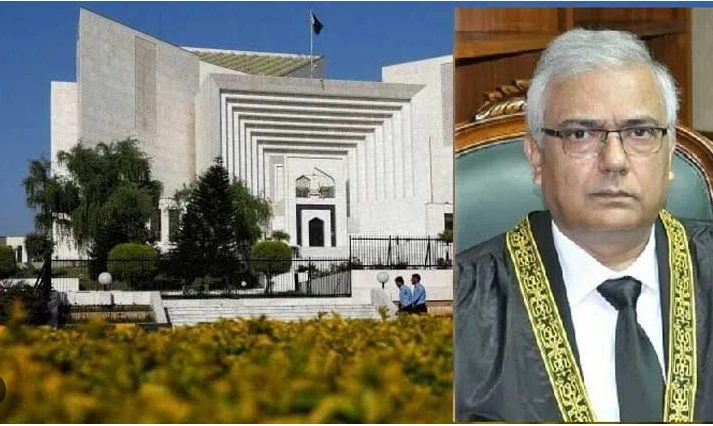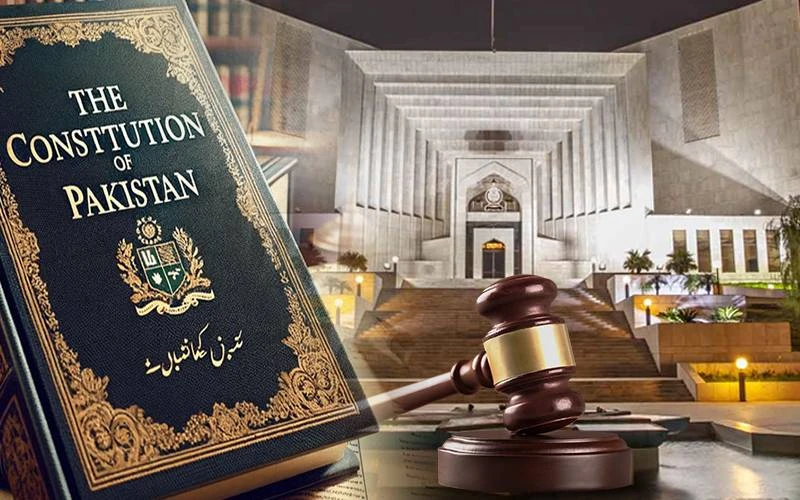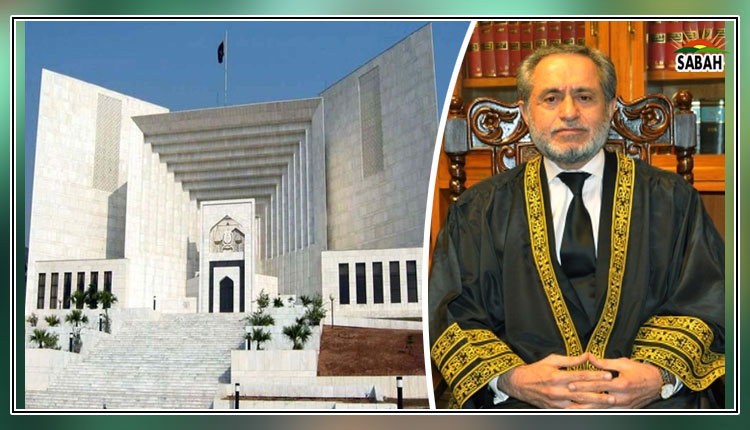Justice Muhammad Ali Mazhar remarked that it is irrelevant whether an accused person can receive bail while their trial is ongoing in a military court. He questioned whether five judges could declare the decision of another bench null and void. He also mentioned that no military personnel has ever challenged the law. Justice Syed Hassan Azhar Rizvi inquired about the difference between someone involved in espionage against the country and an ordinary civilian, asking if the lawyer should make that distinction in their arguments. He further questioned how bail can be granted in speedy trials within 10 to 15 days.
Justice Musarrat Hilali remarked that the 21st Amendment was made in the context of the APS incident, and it had no relation to the events of May 9. She raised the question of under what law military courts gained jurisdiction over the accused of the May 9 incidents. She stated that there should be a distinction between an attack and a protest, as an attack typically involves armed aggression.
The seven-member constitutional bench, headed by Justice Ameen-ud-Din Khan, also included Justices Jamal Khan Mandokhel, Muhammad Ali Mazhar, Syed Hassan Azhar Rizvi, Musarrat Hilali, Naeem Akhtar Afghan, and Shahid Bilal Hassan. They heard 39 review petitions against civilian trials in military courts. Former Chief Justice of Pakistan, Justice Jawad S. Khawaja’s lawyer, Khawaja Ahmed Hussain, began his arguments. Khawaja stated that an accused cannot be granted bail until the military court completes its trial. Justice Syed Hassan Azhar Rizvi further questioned how bail could be granted in such cases.

During the arguments, Khawaja Ahmed Hussain highlighted that the Supreme Court had declared the process for civilians to be unconstitutional, as the military judge and jury system was involved. He also argued that if the bench changes this decision, it would be a deviation from basic and universal principles, including fair trial rights under Article 10-A and due process. Justice Syed Hassan Azhar Rizvi asked whether someone working with enemies of the country should be treated the same as an ordinary civilian, urging the lawyer to make a distinction in their arguments.
Justice Ameen-ud-Din Khan reiterated that they are hearing an appeal in which certain provisions were declared void, and they need to examine whether the decision is legally correct. He added that they are not creating something new and would either dismiss or accept the appeal based on the merits. Khawaja Ahmed Hussain, in his concluding remarks, said that the issue is related to public interest and the enforcement of fundamental rights.
The hearing was adjourned until the next day, and Khawaja Ahmed Hussain continued his arguments. Justice Jamal Khan Mandokhel remarked that a fine of 20,000 rupees was due on Khawaja. To which Khawaja responded that he had filed a review petition against the fine and requested its withdrawal.


